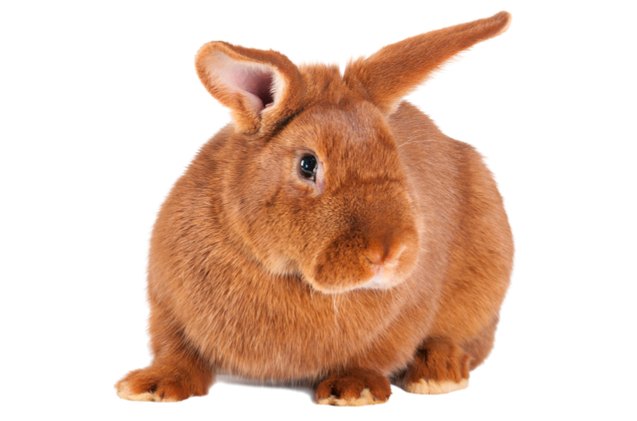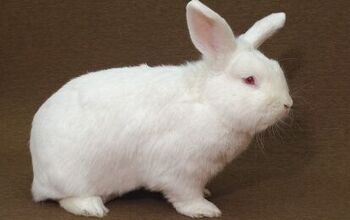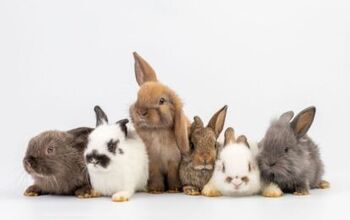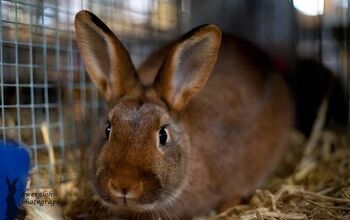New Zealand Red Rabbit


About New Zealand Red Rabbit
Although the name may not suggest it, New Zealand Red rabbit originates from the United States. First selected in 1910 in California, these showy rabbits were meant to be a commercial breed and were bred for their fur and meat. Thankfully, this is not the case anymore: these stunning red rabbits are now treasured as pets.
The exact combination of breeds that were used to create New Zealand Red rabbit is unknown, but some experts think the now extinct Golden Fawn breed is the key to the breed’s genesis. The sources claim that Golden Fawns ( Flemish Giant and Belgian Hare hybrids) were bred with Belgian Hares to achieve the spectacular ginger fur.
The British Rabbit Society recognizes The New Zealand Red rabbit as a separate breed, while ARBA perceives it as a color variant of the New Zealand Rabbit breed.
Best known for their vivid ginger coat and great personality, New Zealand Red rabbits make wonderful family pets.
The New Zealand Red rabbits weigh between 6.5 to 10 lbs and are considered to be a large breed. They are sturdy and thickly built, with a semi-arched body shape, which may be their main difference from the commercial shaped New Zealand Rabbits- apart from the distinct color of their coat. Their long, upright ears are in proportion with the rest of their body and the rounded head.
The short, flyback fur of New Zealand Red rabbits makes them exceptionally undemanding when it comes to grooming. Their hair is of normal type and not too fine, so brushing won’t be a chore: going through their coat with a brush once a week will be more than enough to keep these bunnies neat and tidy. Of course, as all rabbit breeds, New Zealand Red rabbits will shed more during the molting season and will require more frequent grooming during that period. Although not exceptionally silky and soft, the fur of these rabbits is not coarse or rough to the touch- petting them feels lovely!
The name New Zealand Red clearly states what color these rabbits come in: only red pigmentation of the coat is allowed for this breed. And it’s not a dull pale reddish brown, either. These rabbits flaunt a spectacular coat color of deep, vibrant cinnamon-red hue, without any patterns or markings. Their bellies are creamy beige, and they have brown eyes.
These rabbits are affectionate, social, and love being handled by their owners.
Care Requirements
New Zealand Red rabbits can be kept both indoors and outdoors, but if you plan on getting them as a pet, it’s better to have them share a home with you. That way, their lovely personality can truly shine through, and they can get the chance to develop a meaningful bond with you and members of your family. However, an adequate cage for the bunny is mandatory, regardless of where you decide to keep them, as it will serve as a safe haven and a cozy retreat for your pet. The enclosure should provide the rabbit with enough space to comfortably move around, sit, and stretch his hind legs.
Though rabbits need to have their own enclosure where they can safely play and rest, it doesn’t mean they shouldn’t be let outside regularly. Ideally, your bunny should have regular access to the outdoors where they could enjoy some supervised playtime and get the chance to roam about and explore. You should never leave your rabbit unattended when they’re out of the cage, though: even if they don’t get lost or attacked by a predator, rabbits can hurt themselves by nibbling on something they shouldn’t, like electric cables or toxic foods.
Their diet is no different than that of any other pet rabbit- New Zealand Reds will thrive if their meals are based primarily on hay and high-quality rabbit pellets. Of course, a variety of veggies and fruits, such as carrots, lettuce, or strawberries, should be given both as a vitamin boost and as a yummy treat.
New Zealand Red rabbits are generally considered to be a healthy and robust breed, and they don’t have any breed-specific diseases or hereditary conditions you should be aware of.
But, when it comes to health issues that are common to all rabbit breeds, you should pay attention to early warning signs that something is wrong with your pet rabbit. For example, poop connected by strands of hair or constipation can signal that your pet has hairballs that caused an intestinal blockage (commonly known as GI stasis). Thankfully, this, as well as most other rabbit health issues, is completely preventable. Regularly groom your pet and provide plenty of hay in their diet: not only it will keep their digestive tract healthy, but it will also help them grind down their teeth.
In general, lack of appetite, apathy or sudden mood and personality changes tend to signify an underlying medical condition, so it’s best to contact a vet if you notice any of these symptoms in your bunny.
Smart and easy-going, The New Zealand Red Rabbit is an ideal choice for first-time owners.
Easy-going and friendly, New Zealand Red rabbits make excellent family pets. These sweet-natured bunnies don’t mind being handled and enjoy cuddles and petting. They are also a great choice if you have children or other pets in your household: as long as they are well-mannered and respectful, New Zealand Red won’t mind the interaction.
These pretty-looking rabbits can be successfully litter trained, provided that you have the patience to teach them and start the training at an early age. New Zealand Reds are a smart breed and will pick up on what you teach them if you are persistent!
Docile and calm, these golden-red bunnies are rarely (if ever) agressive and genuinely love socializing with humans, so they’re an ideal candidate for first-time owners looking to get a pet rabbit that is easy to care for and has a wonderful personality.
Photo credit: yevgeniy11/Shutterstock; Andrii Zhezhera/Shutterstock

A proud mama to seven dogs and ten cats, Angela spends her days writing for her fellow pet parents and pampering her furballs, all of whom are rescues. When she's not gushing over her adorable cats or playing with her dogs, she can be found curled up with a good fantasy book.
More by Angela Vuckovic

























